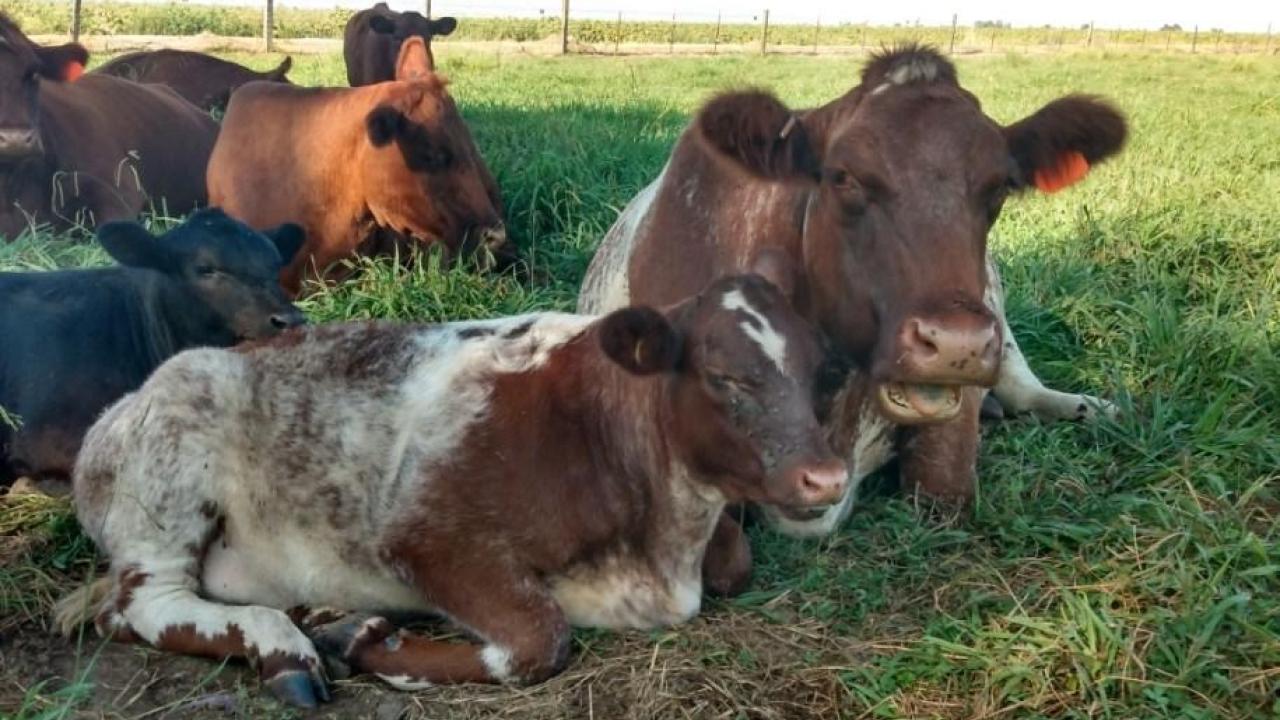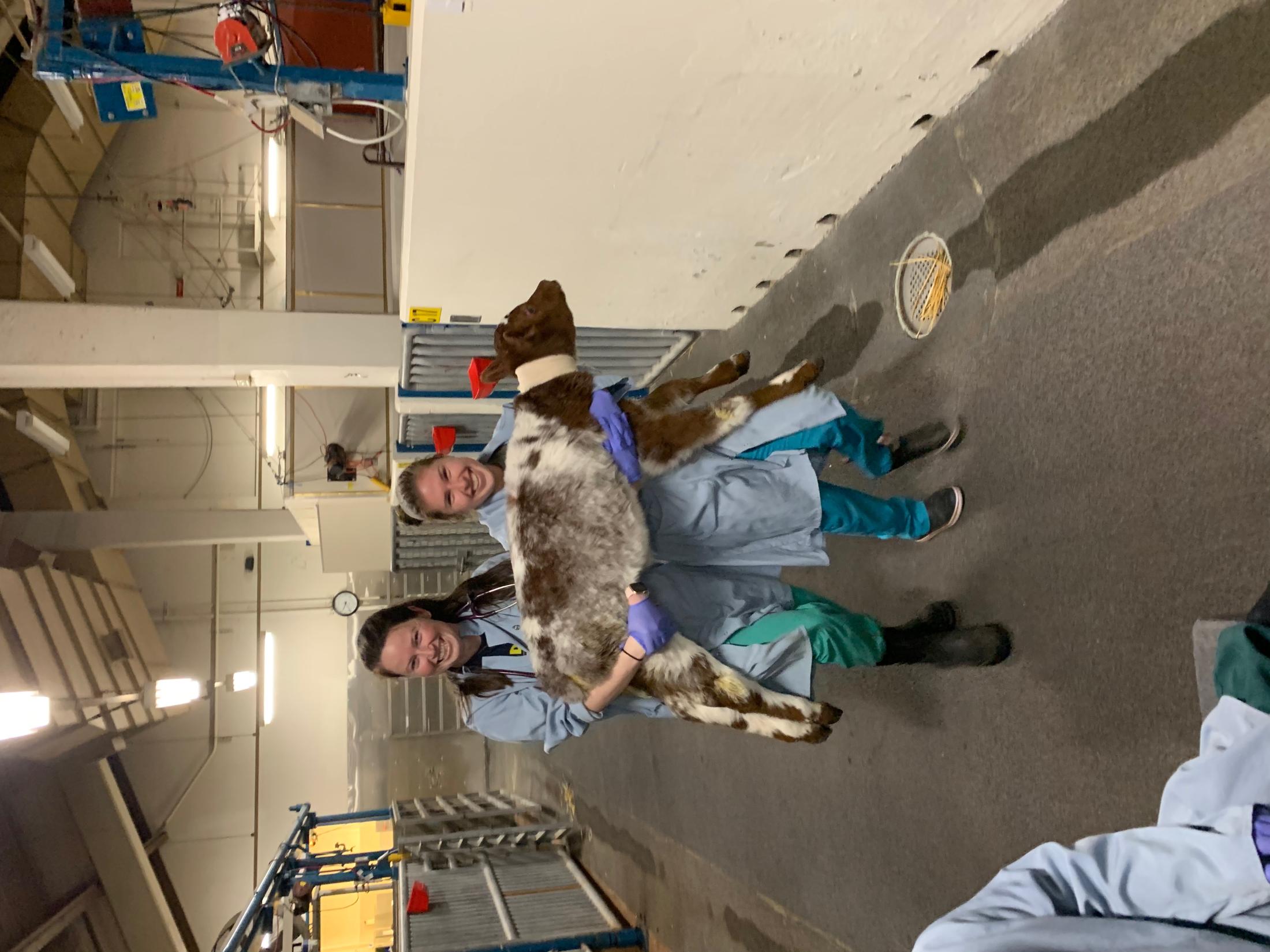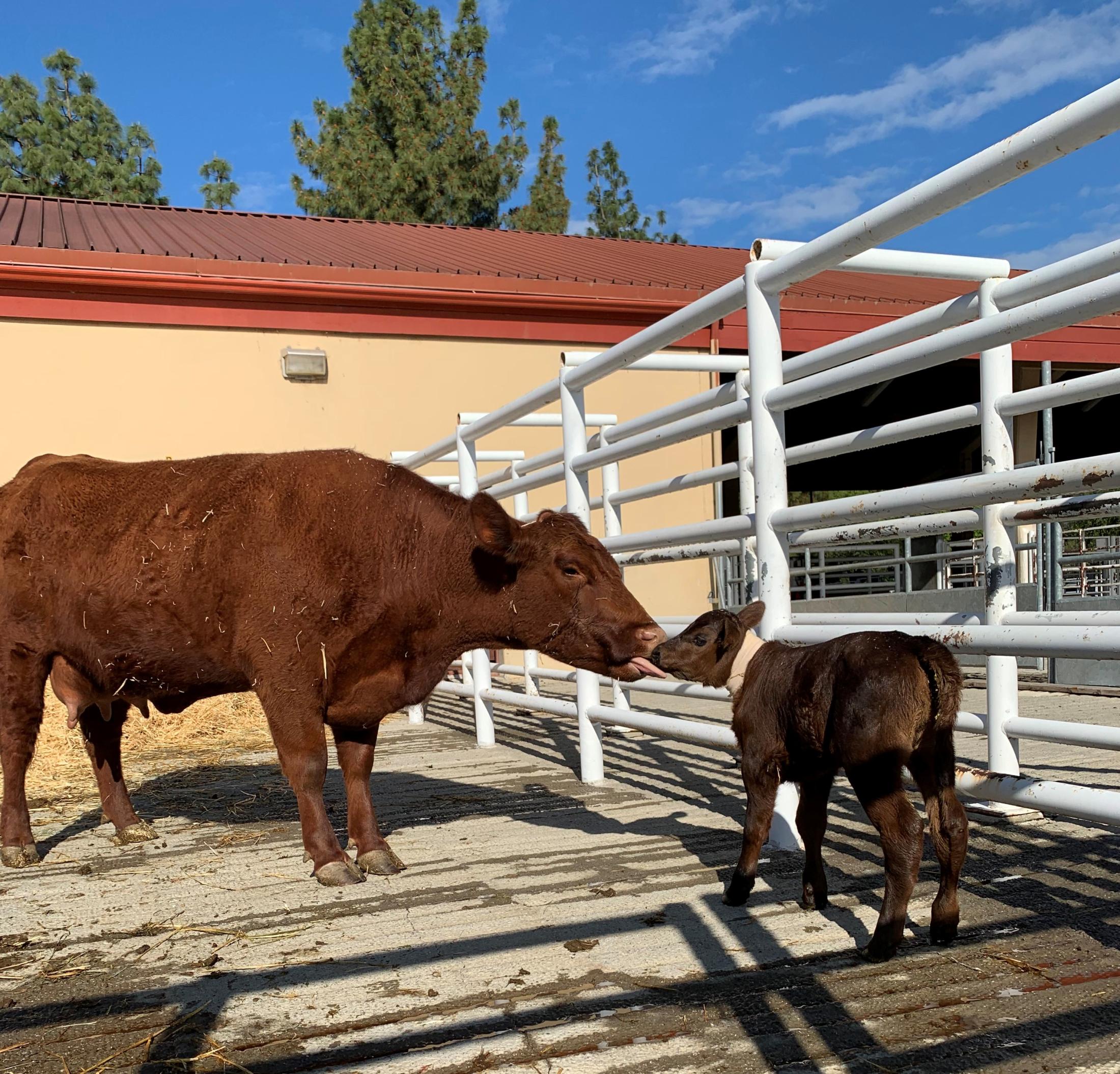
Swift Care Saves Newborn Calves from Deadly Infections
“Case of the Month” – July 2020
The Schuler Ranch in Yuba City is a small beef cattle operation with about 25 head of shorthorns. The 2020 calving season started out as normal as any calving season of the past, with four healthy calves being born, including a set of twins. When the next group of cows calved, five of their newborns became ill at the same time. It was clear that something devastating could be going through their small herd and could wipe it out quickly. After onsite veterinary services could not save one of the sick calves, they rushed the four others to the Large Animal Clinic (LAC) at the UC Davis veterinary hospital.
“We called UC Davis at 2 in the morning,” said fourth-generation rancher Brian Greathouse, who helps run and oversee operations at the Schuler Ranch. “Their team was unbelievable in helping us prepare the cattle for transport to the hospital.”

A necropsy on the deceased calf and subsequent tests on the others revealed the calves were infected with K99 Escherichia coli (“e. coli”), as well as Cryptosporidium parvum (“crypto”). These bacterium and parasites can cause severe diarrhea and be deadly to newborns.
“Proper vaccination and herd health are top priorities at the Schuler Ranch,” said Greathouse. “Our ranching operation had never experienced such a problem with calves becoming sick and quickly showing symptoms within the first 24 hours.”
It was determined that the only change on the ranch which may have caused increased exposure to e. coli or crypto for the calves was geese migrating through and resting in the pastures.
“The newborn immune system lacks appropriate antibodies to fight these types of infections,” said first-year LAC resident Dr. Beth Williams. “In the first few days of life when calves are just starting to develop early immunity and drinking colostrum (rich in antibodies) from their mothers, their guts are very open and permeable to potential infections of the environment. Most likely, there were high levels of e. coli and/or crypto from the geese, and the newborn calves were affected.”
Management for these diseases consists largely of prevention and environmental control. Keeping the area for calving as clean as possible, and avoiding any fecal contamination is ideal. Crypto is hard to kill in the environment, and thus practicing excellent hygiene around the calves is key. Using high heat when washing nursing bottles and drying blankets and clothing can help destroy the spores. Thankfully, there is a vaccination for K99 e. coli, so Dr. Williams discussed with Greathouse its future use on pregnant cows and heifers to help protect the herd and help prevent and/or limit impact of the disease in the calves. The rest of the calving season at the Schuler Ranch was back to “business as normal,” with the remaining cows being moved to another pasture (that the geese had not migrated through) to calve out.

As for the four calves that were hospitalized, they were cared for by the Livestock Medicine and Surgery Service and treated with IV fluid therapy, antibiotics, and pain management. All responded well and recovered quickly. While they were at UC Davis, their mother cows accompanied them to the hospital. It was important for the newborns to continue receiving the nutrient-rich milk from their mothers, but equally important for the mothers to have their udders emptied on a daily basis to avoid mastitis (infection in the udder).
“I really enjoyed working with the Greathouses,” said Dr. Williams. “They have been tremendous supporters of UC Davis for many years.”
The Schuler Ranch was introduced to the livestock services at UC Davis by their veterinarian of 25 years, UC Davis alum Dr. Thomas Graham.
“Having this great working relationship between the Schuler Ranch, Dr. Graham, and the livestock specialists at UC Davis is a key to the continued success and future of cattle operation at the Schuler Ranch,” added Greathouse.
The Schuler Ranch has brought dozens of animals to UC Davis over the more than two decades they have been clients. Most of the cattle from the ranch are sold as show steers for children in 4-H programs, or as replacement heifers.
“UC Davis saved us quite a bit of financial loss,” said Greathouse. “But more importantly, they saved those calves’ lives. The Schuler Ranch is not a big outfit, so what Dr. Williams and everyone at UC Davis did helped us survive a potentially devastating loss to our operation.”
# # #
The livestock services at UC Davis will see upgrades and modifications to facilities and equipment in the near future, as the proposed Livestock and Field Service Center (LFSC)—as part of the future Veterinary Medical Center—will provide improved student and clinician efficiency and safety, as well as continue to provide patients with outstanding veterinary care on par with that provided to the Schuler Ranch cattle. The LFSC has been designed in consultation with Temple Grandin, Ph.D., well known for her groundbreaking work in engineering humane animal facilities and is a fellow in the Society of Biological and Agricultural Engineers. Emphasizing modern concepts in animal welfare, Dr. Grandin partnered with UC Davis to create the best possible environment for livestock handling, care and clinical teaching.
